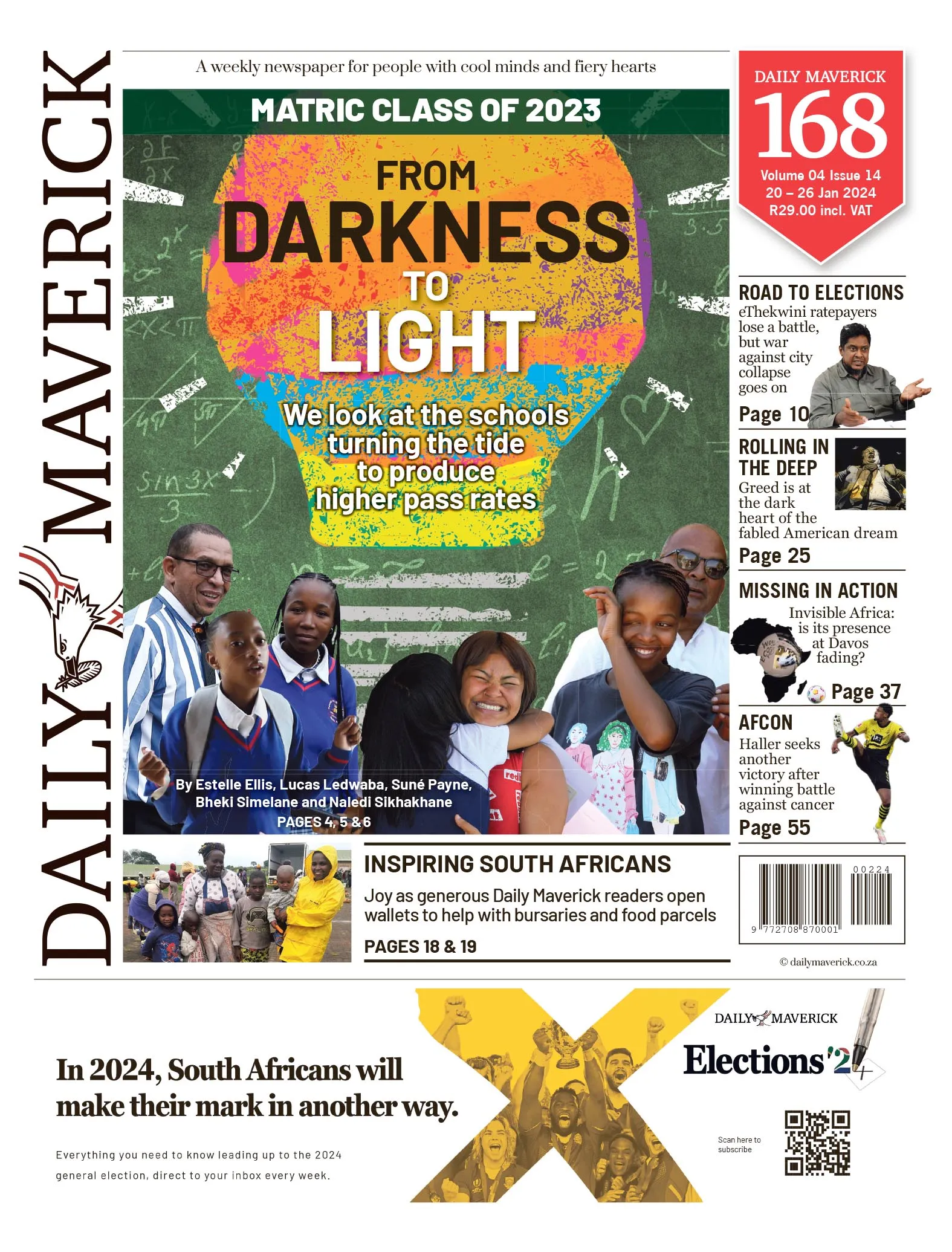‘Education is what liberated me. The ability to read saved my life. I would have been an entirely different person had I not been taught to read when I was, at an early age,” Oprah Winfrey declared in a 2016 interview with Today’s Woman magazine.
As someone who started spelling and reading at a very young age and can attest to how my life was impacted for the better as a result, this statement resonates with me.
That foundation laid the groundwork for how I found myself in my current career trajectory. However, in South Africa we have seen that spelling, reading and writing are things in which not all pupils reach proficiency, let alone excel.
The value of education cannot be denied, but I often wonder whether pupils and students truly appreciate its value beyond it being a tick-box exercise in completing their formal schooling career and staying out of trouble.
When I was growing up, I remember not being the most enthusiastic pupil because I often felt it was keeping me from doing what I really wanted to do, which was to read books that transported me to other worlds and to write my little heart out.
The schooling system at the time was not invested in finding out what my natural intellectual inclination was or how to help me to nurture it. It felt very much like a conveyor belt that simply churned out numbers to make the education system look good and didn’t really care about me.
Surprisingly, it was only in varsity that I felt more centralised in my own education because my courses, with my extra tutorials and extracurricular activities in the form of supporting social clubs, aligned with my interests.
After a false start to my university career in my first year, I went through what I often used to describe to my friends as “scales falling from my eyes” – a strangely biblical reference for someone who is not at all religious.
I was still not the greatest of students, but I really started to understand the value of the education I was receiving – that it was a privilege not afforded to the majority in our country and was also meant to enable me to live an independent life of my own.
Value of education
But are we all on the same page and in agreement regarding what education is meant to elicit from children?
For me, the value of education lies in how your mind and world open up as you discover new ways of understanding the world and how to apply your mind to solving problems.
It is a way to ground yourself in the principles required to challenge ways of thinking and existing norms with the view of betterment.
It is the foundation on which our thinking is shaped and our knowledge base is broadened to create the world we want.
Read more in Daily Maverick: Education and youth archives
What I have come to appreciate is that we are not the sum total of our academic achievements in matric or at varsity. What makes for a good student is how you apply the content gained from academic institutions constructively.
So, your results in matric or at the end of your degree or diploma don’t hold as much weight as how you apply the knowledge you have gained in the real world. DM
This story first appeared in our weekly Daily Maverick 168 newspaper, which is available countrywide for R29.


















“As someone who started spelling and reading at a very young age and can attest to how my life was impacted for the better as a result …”
This is just an FYI and not particularly aimed at Ms Pikoli, so you can take it or leave it, but when you use ‘impacted’ like this, I straight away assume you don’t know when to use ‘effect’ or ‘affect’. You’re not ‘wrong’, but it is bad English.
(HINT: Replace ‘impacted’ with any other verb, like ‘eaten’. If the sentence still makes sense grammatically, use ‘affected’. I know it’s tricky as both effect and affect can be nouns or verbs.)
Also, “Scales falling from my eyes”, yea, that’s called a Damascene Moment. It just takes less time to type. Thank you for coming to my TED talk, I shall now go back to from whence I came.
/S
Thank you Dr Dolittle ! There seem to be few of you because in a brief comment I posted a short while ago, I had a similar experience . I suspect that like me, Ms Pikoli is not an indigenous English speaker ? By the way , there is a publication with the title “Eish … but is it English?”. I found it fascinating.
In general, I support your contention. However I would suggest that the real value of ‘education’ depends on your ‘character’, which ML King made such an issue of . It is that difficult to define feature of humankind .. which I believe stems largely from the kind of values and people you adopt as your ‘role models’ or mentors. Your colleague Marianne presently refers us to a movie, which encapsulates what we mean by ‘character’.
Well, despite the other comments, I loved your article and thought your language was spot on. You wrote from the heart and it was a delight to read. So, bah humbug to the nitpickers!
And I love that you published this at a time when many people are going to be feeling like they’ve failed instead of seeing the many different paths that could lay ahead. Starting with reading and taking charge of one’s own education is excellent advice!
And re the comment below, it’s not “bad” English, it’s “poor” English… But the irony is that this article is neither! Thanks for the simple inspiration!